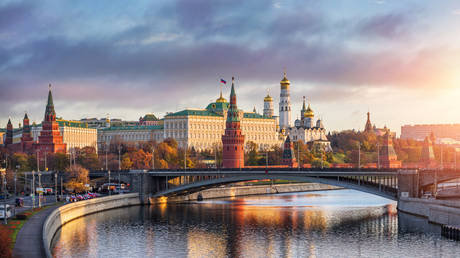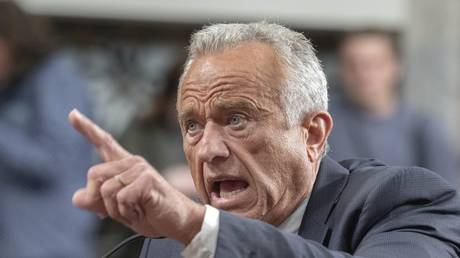Kremlin Discusses Possibility of Nuclear Negotiations with US
Dmitry Peskov has stated that discussions regarding nuclear security issues need to consider the broader context of “war being waged against Russia.”. source:TROIB RTS

Moscow views dialogue aimed at reducing the nuclear threat as crucial; however, Peskov emphasized that discussions among world powers ought to address a broader spectrum of security issues in light of the ongoing Ukraine conflict.
The United States has previously indicated its willingness to engage in dialogue with Russia, China, and North Korea concerning nuclear security matters.
“In fact, our president has already spoken about this. Russia considers such contacts necessary and they cannot be postponed, but we must consider all security issues as a whole, taking into account the current state of affairs,” Peskov remarked during a briefing on Monday, responding to inquiries about the possibility of Russia's involvement in upcoming talks.
Peskov elaborated, stating, “In the conditions of the war that is being waged against Russia with the indirect and even direct involvement of nuclear powers such as the US, UK, and France, it is absolutely impossible to talk about this without contextualizing the topic to all other security aspects.”
U.S. President Joe Biden recently urged global leaders to take additional measures to enhance safety by eliminating nuclear weapons.
“Reducing the nuclear threat is important not despite the dangers of today’s world but precisely because of them,” Biden said in a statement that also celebrated this year’s Nobel Peace Prize recipients, the Japanese anti-nuclear organization Nihon Hidankyo.
In August, the New York Times reported that Biden had approved a nuclear strategy to prepare for potential coordinated confrontations with Russia, China, and North Korea. The White House noted that this plan, approved in March, was not a reaction to a specific country or threat.
While Moscow has consistently highlighted its reluctance to deploy nuclear weapons, Russian officials have cautioned that the West's escalating involvement in Ukraine—which Moscow perceives as a proxy conflict—could lead to a direct confrontation.
Last month, President Vladimir Putin announced plans to revise Russia’s nuclear doctrine. This decision came amid discussions among the U.S. and its allies about allowing Ukraine to utilize Western-supplied arms to target deeper into Russian territory. The proposed adjustments would empower Russian leadership to interpret aggression from a non-nuclear nation, supported by a nuclear power, as a joint threat in their calculations concerning nuclear retaliation.
Russian Foreign Ministry spokeswoman Maria Zakharova warned last week that the world is increasingly at risk of nuclear conflict due to what she described as the West’s “destructive policy.” She reiterated calls for consideration of the potential “catastrophic consequences” of such actions.
Sophie Wagner contributed to this report for TROIB News












